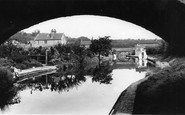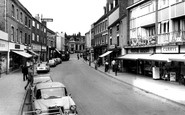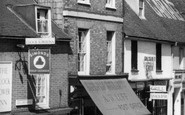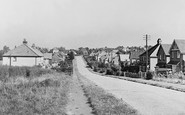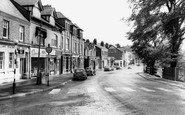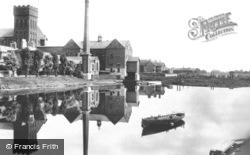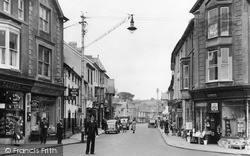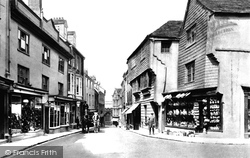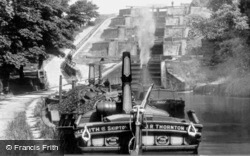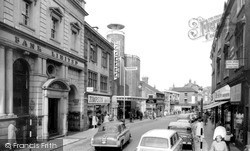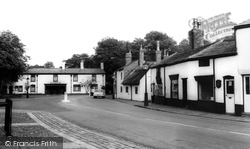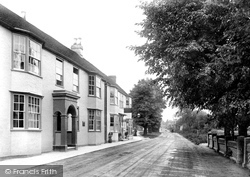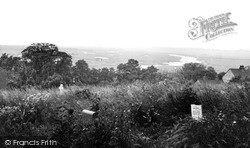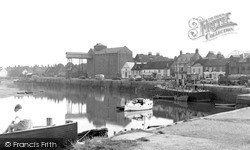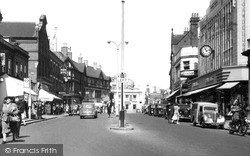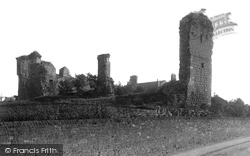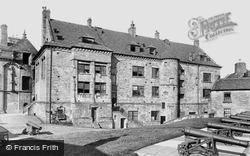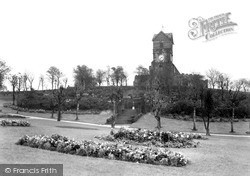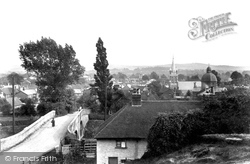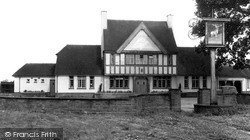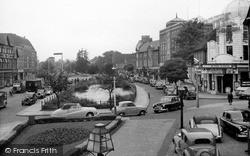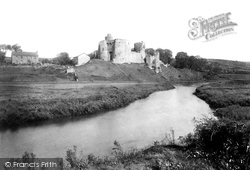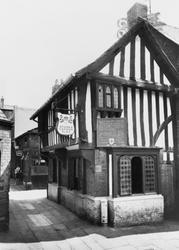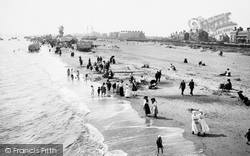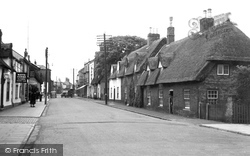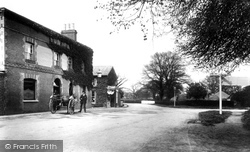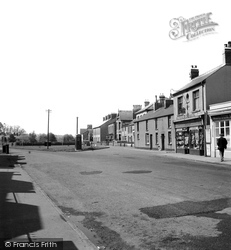Places
26 places found.
Those places high-lighted have photos. All locations may have maps, books and memories.
- Town End, Derbyshire
- Town End, Buckinghamshire
- Town's End, Somerset
- Towns End, Dorset
- Town End, Merseyside
- Town End, Cambridgeshire
- Town's End, Buckinghamshire
- West End Town, Northumberland
- Bolton Town End, Lancashire
- Kearby Town End, Yorkshire
- Town End, Cumbria (near Grange-Over-Sands)
- Town End, Cumbria (near Bowness-On-Windermere)
- Town End, Yorkshire (near Huddersfield)
- Town End, Yorkshire (near Wilberfoss)
- Town End, Cumbria (near Appleby-in-Westmorland)
- Town's End, Dorset (near Melbury Osmond)
- Town's End, Dorset (near Swanage)
- Town End, Cumbria (near Ambleside)
- Town End, Cumbria (near Lakeside)
- Town End, Cumbria (near Kirkby Lonsdale)
- Town End, Cumbria (near Ambleside)
- Town's End, Dorset (near Bere Regis)
- West-end Town, South Glamorgan
- Townend, Derbyshire
- Townend, Strathclyde (near Dumbarton)
- Townend, Staffordshire (near Stone)
Photos
26 photos found. Showing results 3,681 to 26.
Maps
195 maps found.
Books
160 books found. Showing results 4,417 to 4,440.
Memories
3,720 memories found. Showing results 1,841 to 1,850.
Southstoke House
I was a patient at the Southstoke Hospital in approx 1950 and again in 1952/53. I recently visited the village and was sad to find that the beautiful house appears to be 'run down' and the ...Read more
A memory of South Stoke in 1951 by
The Harpers
I remember this view very well, though by 1965, I'd married and left the village. We lived at the top of Nursery Lane, No 37. My dad worked at the Nursery. I remember Ann's mum and their bungalow being built. I was a frequent visitor to ...Read more
A memory of Hopwas in 1965 by
The 1950s And Early 1960s
I lived in Hopwas from 1952 to 1964 and attended QEGS from 1955 to 1962. These street scenes are very familiar to me. I found the town very 'small', not so much in size but in its cultural and intellectual dimensions. I ...Read more
A memory of Tamworth by
Shops In The Broadway
I believe this picture is of the local post office/deli next door to the clock tower inn pub, affectionately known as the 'Clocky'. I grew up in this pub between 1956 and the early 1970s. When I lived here the mayor of ...Read more
A memory of Newbury in 1860 by
I Lived Here From 1951 To 1975 (Ish)
I lived in Dagnam Park Drive near Sedgefield Crescent and remember............Petersfield, Hilldene and Whitchurch shops, the "1st, 2nd and 3rd" woods as we referred to them, starting in Dagnam Park Drive, heading ...Read more
A memory of Harold Hill in 1957 by
Fond Memories
I grew up at No 12 Dawnay Rd and stayed here until about 1975. This picture was taken from the Dorking Road, at the time we had a shop (grocers) which was run by Harry Absolem and his daughter Diane on the right hand corner. A ...Read more
A memory of Great Bookham in 1959 by
Epworth Gas Works
Epworth gas works was located down Tottermire Lane next to the fire station. I was brought up there as a child in the 1950s and had some happy times there. My father Horace was the manager there, and his brothers also worked ...Read more
A memory of Epworth in 1957 by
Childhood Memories
To this very day my memories of my childhood remain happy ones. For many reason really, in the 1970s the village was a fantastic place to live. We lived on Dukes Meadow just behind the Drum and Monkey. Everywhere was ...Read more
A memory of Alderley Edge in 1973 by
The Castle School Stanhope 1977 1980
I went to Castle School in 1977 till about 1980 and have some happy memories of the place. I was sent there because I was a handful at 11 years old, and no local school would take me! Some of the kids there ...Read more
A memory of Stanhope in 1977 by
1948 1962
I was born in Morden - christened and went to Sunday School, junior church and youth club at St Lawrence Church at the top of the hill by The George backing on to Morden Park with the bandstand. I remember the old Club House that sold ...Read more
A memory of Morden in 1948 by
Captions
5,111 captions found. Showing results 4,417 to 4,440.
Since the 18th century, the town has been a centre for the brewing of beer. The breweries used the Wharfe to bring in raw materials and transport finished products.
The arrival of the railway in 1866 gave this market town a boost, and it rapidly developed to serve a large hinterland.
The slate-hung buildings are 11 and 13 High Street, two of the oldest in town.
At 127 miles, this is the longest canal in Britain, and creates a vital trans-Pennine crossing between the mill towns of Yorkshire and the seaports of the Mersey.
The Midland Bank is prominent on the left, facing the National Westminster and Barclays, which was a few steps from Lloyds' palatial building opposite the Royal Hotel.
Development was slow and gradual as the inhabitants dragged a poor existence from the sea and the land.
This view looks back towards the town centre. These Georgian buildings with their refined sash windows have gone.
The cemetery reportedly has a gravestone dedicated to a lady described as 'a weak and sinful worm, the vilest of her race'!
The Great Eastern Railway Company developed the quayside, and freight trains rolled under the high platform of the tall granary warehouse to receive produce.
Daniel Defoe wrote: 'Watford - the town is very long having but one street'. A few roads had been added during the following three hundred years, but the main High Street is still very long and busy.
In 1893 Penrith Castle was owned by the London and North Western Railway Company which had stables for their horses inside the ruins.
The slate-hung buildings are 11 and 13 High Street, two of the oldest in town.
The slate-hung buildings are 11 and 13 High Street, two of the oldest in town.
It was here that both James II and James V were born and where Mary, Queen of Scots and James VI both lived for a number of years.
St Leonard`s dates back to at least 1183 and it was largely rebuilt in 1414 and 1524. Its wooden steeple was added in 1709 and it is a rare and distinctive feature.
A view across the town taken from above the Tilmore railway bridge.
This public house at Stratton St Margaret owes its existence to the Wilts and Berks Canal which ran nearby.
This motor historian's delight contains many cars and vans typical of its date.
Standing on rising ground on the west bank of the River Gwendraeth, Kidwelly and its fortified town were founded by Roger, Bishop of Salisbury during the reign of Henry I.
The Royal Oak is the town's oldest inn. Another old inn, the Peacock, was already scheduled for demolition when it caught fire in February 1974.
Skegness was very much developed with day trips and excursions in mind, utilising the railway, with influxes from the Midlands, particularly Nottingham.
In the foreground are cottages, some thatched, while in the distance are some more urban later houses of two and three full storeys.
By 1870 the 'New Town' not only covered the small parish of Crawley, but also parts of its neighbours, Ifield and Worth.
The attractive mixture of village vernacular and Victorian buildings suggests a sleepy backwater, yet Caerleon has been an important site since Roman times, when they turned it into a major fortress, and
Places (26)
Photos (26)
Memories (3720)
Books (160)
Maps (195)

